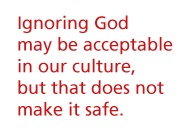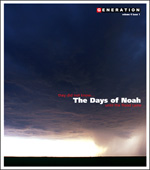![]()

Long ago, a bustling city thrived in the shadow of a quiet mountain in Italy. Once, a great earthquake had damaged so much of this city that the emperor in Rome wondered aloud why its citizens did not pack up and leave. But the people there were proud, stubborn, and exceedingly comfortable; they stayed. Before long, the metropolis sparkled more than ever: wealthy Roman patricians socialized in the public baths, new frescos glistened in the ornate villas, Dionysian revelries continued with newfound abandon.
But at 1:30 P.M. on August 24th, A.D. 79, their forgotten mountain erupted. It obliterated the town so quickly that people were caught and entombed in their dying postures. The sea of hot ash and mud buried all and preserved them thus, frozen in attitudes of shock, fear, and utter surprise. Surely, living so near, they had believed Vesuvius was asleep. To many, even its rumbling warnings and the region's history of mysterious earthquakes had not seemed seriously threatening. Besides, they had enjoyed their luxurious lifestyle there on its slopes, so the warnings had been easy to ignore. Too late, the people of Pompeii knew that they, not the mountain, had been asleep. Now, except for those who had wisely fled the city, their slumber was permanent.
 Dangerous Slumber
Dangerous Slumber
Like the carefree inhabitants of ancient Pompeii, we live in a dangerous stupor. Young or old, wealthy or merely wishing to be, all of us are under the same anaesthetic. The naïveté into which we've been lulled is the result of our dedication to excess: excess in wealth, excess in self-improvement, excess in pleasure, in eating, drinking, and in all manner of physical pleasures. Our employers, our universities, even occasionally our parents, promise us frivolous rewards—gourmet cafés at work, luxury automobiles and tropical cruises after college. And while few of us can realize the American dream so completely, none of us stops dreaming. We may not all play the lottery, but none of us rejects the fantasy of winning a fortune overnight. Modern American culture is dedicated to life, liberty, and the pursuit of indulgence, and this type of pursuit is sweeping the globe. Excess is the order of the day.
Sometimes, we may seek to distance ourselves from our culture's self-gratification. We often think that pursuing a nobler career, a selfless cause, or a personal hobby is somehow healthier than giving ourselves to the rat race for material pleasures. But it is not different. No matter what our interests are, the result of our chasing after them is the same condition of drugged insensibility. Our materialistic culture, our anti-culture movements, and our self-seeking—of which we are all guilty—have brought everyone on the earth into the same drugged sleep. This sleep prevents us from knowing or caring about the realm of eternal and real things. In this condition we remain on the mere surface of life, blithely ignorant of reality.
Mirror Image
The Bible tells us that our stupor has been seen before. Despite claims that today's culture is the unique pinnacle of pleasure-seeking, there was once another culture that perfectly reflects our own. Long ago, this culture encompassed the whole inhabited earth. All mankind had dedicated itself to physical enjoyment. Drinking was a way of life, not just a way to quench thirst. And when people ate, it became a perpetual feast, uninterrupted for days. Inciting the pleasures of the senses formed the sum total of human life.
The result of this pursuit was a numbing sleep. Mankind's conscience was dulled—violence became accepted, normal, and even exalted. Men boasted of their violence and lack of self-control. At one point, a man named Lamech called together all his wives to congratulate him and rejoice with him. Why were they celebrating? Because Lamech had murdered a young boy who had only struck him.1 Everyone did what was right in his own eyes, much as we do today. Living for pleasures had drugged that age and culture completely. People had forgotten the existence of God.
Washed away
Amazingly, not everyone in those days was stupefied. There was one person who stood against the tide of the culture. He had heard God's word and believed in it. He recognized that he needed to be right with men, right with himself, and right with God. He alone could see through his culture; he alone was awake while the rest were asleep. God's word had come to Noah, this one righteous man, to tell him that God was about to judge the earth. To save him from this judgment, God told Noah to prepare an ark—a floating vessel of immense proportions. Of all his generation, only Noah believed God's word, though many heard it through him. His neighbors were eating, drinking, and marrying in blissful unconcern up to the very day that Noah finished the ark and climbed into it.
On that day the earth was judged. An inconceivable, massive torrent of rain rent the heavens and vast underground bodies of water broke open, becoming a destroying flood. The deluge continued until all flesh on earth was blotted out. The God who judged the earth in this way was the righteous God whom mankind had forgotten in its stupor. Only Noah and his family were spared to float above the destroying flood waters. God had personally saved Noah, saying "for you alone I have seen to be righteous before Me in this generation."2
Forgotten Reality
The account of Noah's days is much like that of our own. Because our world as a whole is distracted and preoccupied with so many things, it has almost entirely forgotten God. Yet pursuing pleasure, causes, or even work or family cares to the exclusion of caring for anything else is not a harmless indulgence. Ignoring God may be acceptable in our culture, but that does not make it safe. Distracted by the "pursuit of happiness," we forget that a realm exists beyond the physical. Living for our transient desires—physical, emotional, or intellectual—is like taking a drug that numbs our sense of what is unseen, eternal, and real.
Nevertheless, the Bible testifies that God exists whether we are conscious of Him or not. He does not cease to exist just because we forget Him. He is more real than anything that distracts us from Him. Whether we admit it or not, something within us responds when we hear God's Word. He has put eternity in man's heart so that we would know that He exists and would seek Him.3 Yet today we are completely oblivious to the existence of God, caring nothing for Him. To live in such a sleeplike condition is to live in danger.
Days of Noah
In the Gospel of Matthew, Jesus Christ reveals a direct link between the days of Noah and the days that will precede His own return to the earth. Speaking to His followers, Jesus said, "For just as the days of Noah were, so will the coming of the Son of Man be. For as they were in those days before the flood, eating and drinking, marrying and giving in marriage, until the day in which Noah entered into the ark, and they did not know that judgment was coming until the flood came and took all away, so also will the coming of the Son of Man be."4 The Son of Man is Christ, who is also the Son of God. He is God Himself, and He intends to come back to the earth. The time just before His coming will be like the "days of Noah"—days of stupor, in which men forget God and disregard the warning of His coming judgment. At such a time of indulging in our own pursuits without any thought of God or the judgment of God, He will return.
When He comes, He will come to judge the earth.5 God cleansed the earth in the days of Noah with a flood, because He could no longer tolerate the drugged state of mankind. At the Son of Man's coming, He will judge the earth again and put an abrupt and permanent end to the numbness that prevails on the earth today concerning Christ and His return.
If we remain in our coma, it will be impossible to escape this judgment. Noah's contemporaries laughed at and despised the man who built an ark in a land that had never seen rain. That was their refusal to wake from their stupor. When the flood came, God saved Noah, who saw through his culture and chose to be awake—but the rest of Noah's generation drowned. If we, like the uncaring generation in the days of Noah, prefer to stay comfortably asleep, we cannot hope to escape judgment at the coming of the Son of Man.
Turn and Live
In A.D. 54, a Roman citizen known as Paul penned words of intimate concern to a group of new believers of Christ. In light of the history of Noah and the fiery tragedy Mount Vesuvius was about to unleash elsewhere in the Empire, his words bore particular urgency. "Let us not sleep, as the rest do," he warned, "but let us watch and be sober. For those who sleep, sleep during the night, and those who get drunk are drunk during the night; but since we are of the day, let us be sober."6 Paul wrote these words to remind the recipients of his letter of the return of Jesus Christ to the earth. His words still apply to us today. As we have seen, Jesus Christ is returning soon, but will He find us asleep or awake, ready or unprepared? God has spoken these things to us to warn us of our real condition. But knowing our condition does not mean that we are awake; it only means we know we are asleep. To be ready to meet the Son of Man, we must wake up, heed God's words, and be soberly watchful.
Waking up involves our heart, for it is our heart that is turned away from God. To meet the Son of Man when He returns, we have to repent of our indifference and passivity towards Him. To repent means that we execute an about face to acknowledge God and confess our need for Him. When we turn, we will live. As Paul wrote "God did not appoint us to wrath but to the obtaining of salvation through our Lord Jesus Christ, who died for us in order that...we may live together with Him."7
The way we repent to God is by changing our way of thinking and then believing into His Son, Jesus Christ. As we confess Jesus as Lord and believe in our heart that God has raised Him from the dead, we are saved by Him from the coming judgment.8 Then at last, we will be freed from the stupor of merely living in the vain realm of self-seeking. Believing, we enter into the unseen realm of God Himself and prepare to meet the Son of Man.![]()
1 Genesis 4:23 (back) 2 Genesis 7:1 (back) 3 Ecclesiastes 3:11; Acts 17:27 (back) 4 Matthew 24:37-39 (back) 5 Romans 2:5; John 5:27-28 (back) 6 First Thessalonians 5:6-7 (back) 7 First Thessalonians 5:9-10 (back) 8 Romans 10:9
Mankind in general is unprepared for the return of Jesus Christ to the earth. The way we begin to ready ourselves to meet Him is by turning to Him and praying the following with a repentant heart:
O Lord Jesus, thank You for waking me up to my real condition. I am a sinner who needs You. Thank You that You shed Your blood on the cross for my sins. Thank You that You resurrected from the dead to fill me with Your eternal life. Lord Jesus, save me from the world's stupor. Fill me with Your life every day so I can be prepared to meet You when You return. O Lord Jesus, thank You for saving me!
